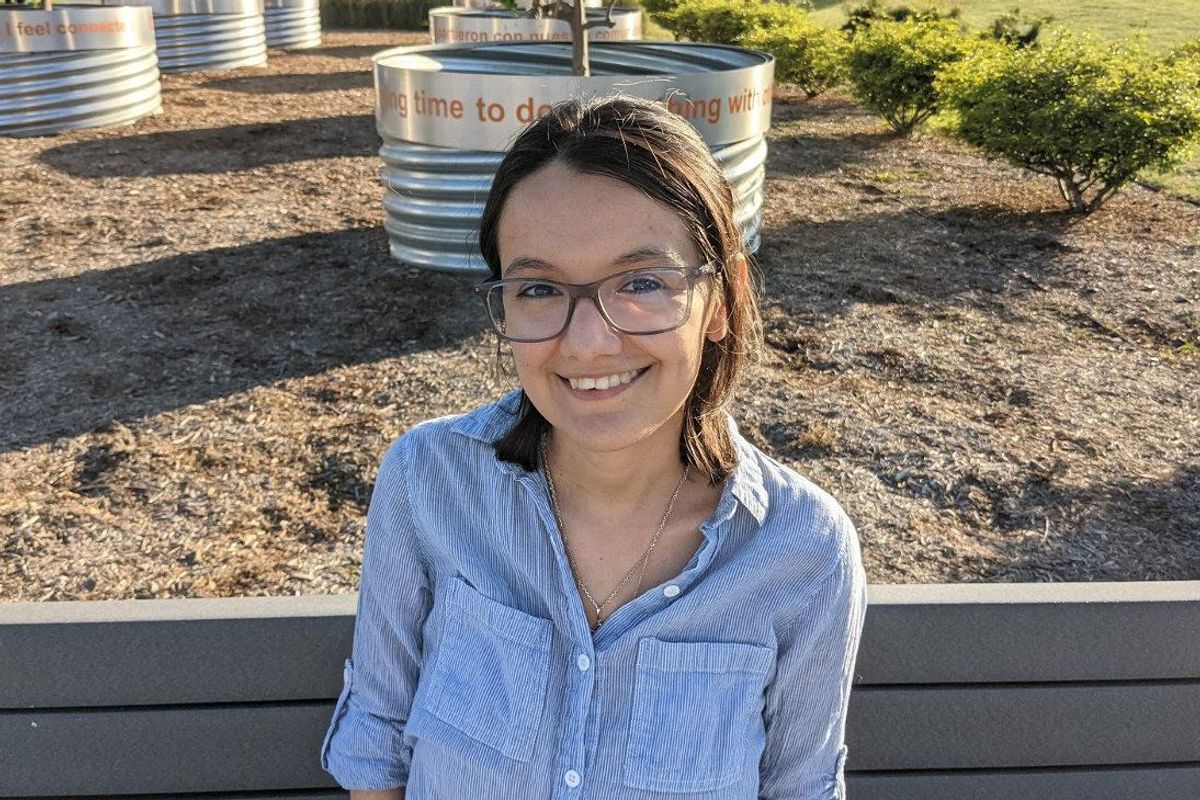
Kystal Vasquez, a Ph.D. candidate at CalTech studying atmospheric chemistry, is EHN’s first Health and Justice fellow, a position designed to operate at the intersection of science, justice, and journalism.
Vasquez, a current Agents of Change in Environmental Justice fellow, brings her science and communication background, along with keen analysis on injustice in STEM fields and research. In April, as part of the Agents of Change program, Vasquez wrote about the disproportionate impact that wildfires have on the disabled community. Her work has also been featured in Scientific American, Chemistry World, and JSTOR Daily.
“Krystal is an undeniable talent in science communication,” said EHN senior editor Brian Bienkowski. “She writes with a fearlessness and sharpness on pressing issues in the science and environmental fields—we’re excited to have her.”
Diversity in STEM
The self-described queer, disabled Latina, studies how tree emissions can affect air quality when interacting with pollutants from industry and traffic. In addition to air pollution, she’s passionate about disability rights, and how those two issues intersect. That intersection, she says, is an overlooked one.
And Krystal is not afraid to speak up.
“I’ve always been kind of vocal about diversity in STEM, but over the course of the pandemic, I think I just got a little louder,” she said. ” I kind of developed a small, little presence on Twitter with the ‘Disabled in STEM’ community.”
Krystal is especially vocal about how labs and scientific facilities are rarely designed with differently abled people in mind, which calls into question who science is for. Her tweets caught the eye of an editor at Chemistry World, who invited her to pen an article about universal design, and how lack of consideration pushes disabled scientists out of STEM fields.
Related: A disability should not be a death sentence during a natural disaster
“Labs are very inaccessible to people with disabilities,” said Krystal. Things like fume hoods are not great for people who cannot stand for extended periods of time, for example. “And there are ways to improve that—there are ways to redesign a lab to try and accommodate as many needs as possible. You’ll never really get everyone, but you can do the best you can.”
Krystal was also recently featured on a segment of NPR’s daily science show, Short Wave, to elaborate on the importance of welcoming differently abled researchers into those spaces.
“Disability is an identity,” Krystal says. “It’s not a medical issue or a problem. It’s an identity and it’s a community and it’s diversity that we should be including in science, just like any other kind of diversity.”
Science communication with a purpose
A grad student, activist, and now science communicator—Krystal is many things. And the Agents of Change fellowship has reminded her how much she enjoys writing about science, especially in a way that combines her passions. She’s grateful that the program let’s her combine science communication with environmental justice, without already needing years of media or journalism experience. “It’s an accessible way to talk about things that I’m passionate about, and to combine all of my identity into my writing.”
Krystal’s excited to delve further into the science communication world and hone those skills at EHN this summer. She has about a year left in school.
There are so many air pollution stories to be written beyond just the typical LA narrative, or how pollution impacts the lungs of healthy adults, said Krystal. “I think we can expand on that and talk about how it affects groups that you don’t even think of, like the homeless population or the disability community.”
She knows of academics who are doing that research—pinpointing and measuring inequalities in pollution between communities and neighborhoods—and she’d like to help bring that knowledge into the view of wider audiences. “The disability community is fighting for so many things, because we’ve been overlooked in every aspect of society for so long.”
Science communication that addresses the struggles of marginalized populations and differently abled communities is so important, said Krystal, because those people are usually impacted the most. “Climate change isn’t really going away, and neither are these communities.”
Hannah Seo is a freelance reporter and the assistant editor of the Agents of Change in Environmental Justice program.
Banner photo: Krystal Vasquez

